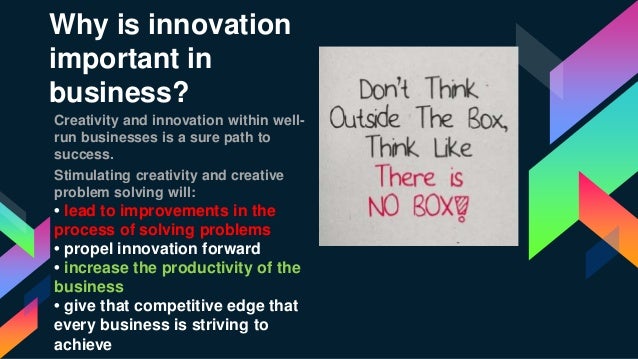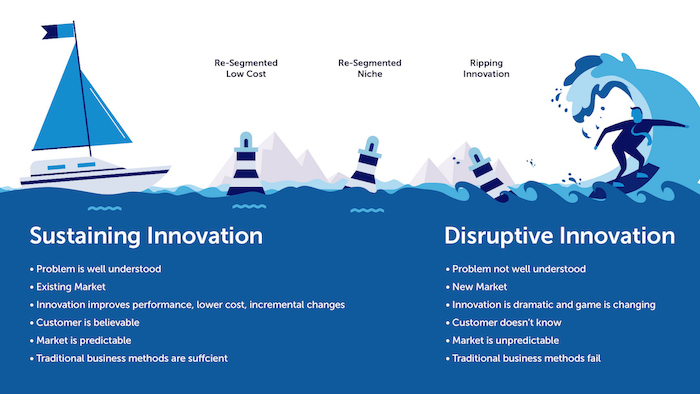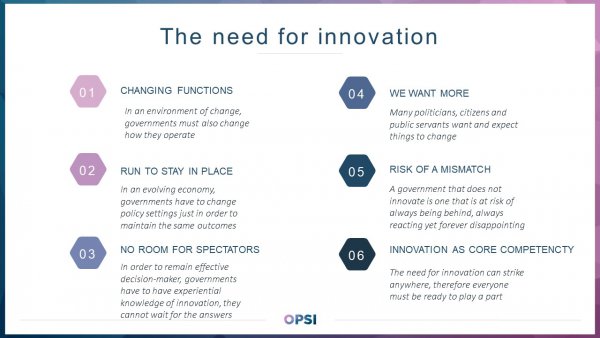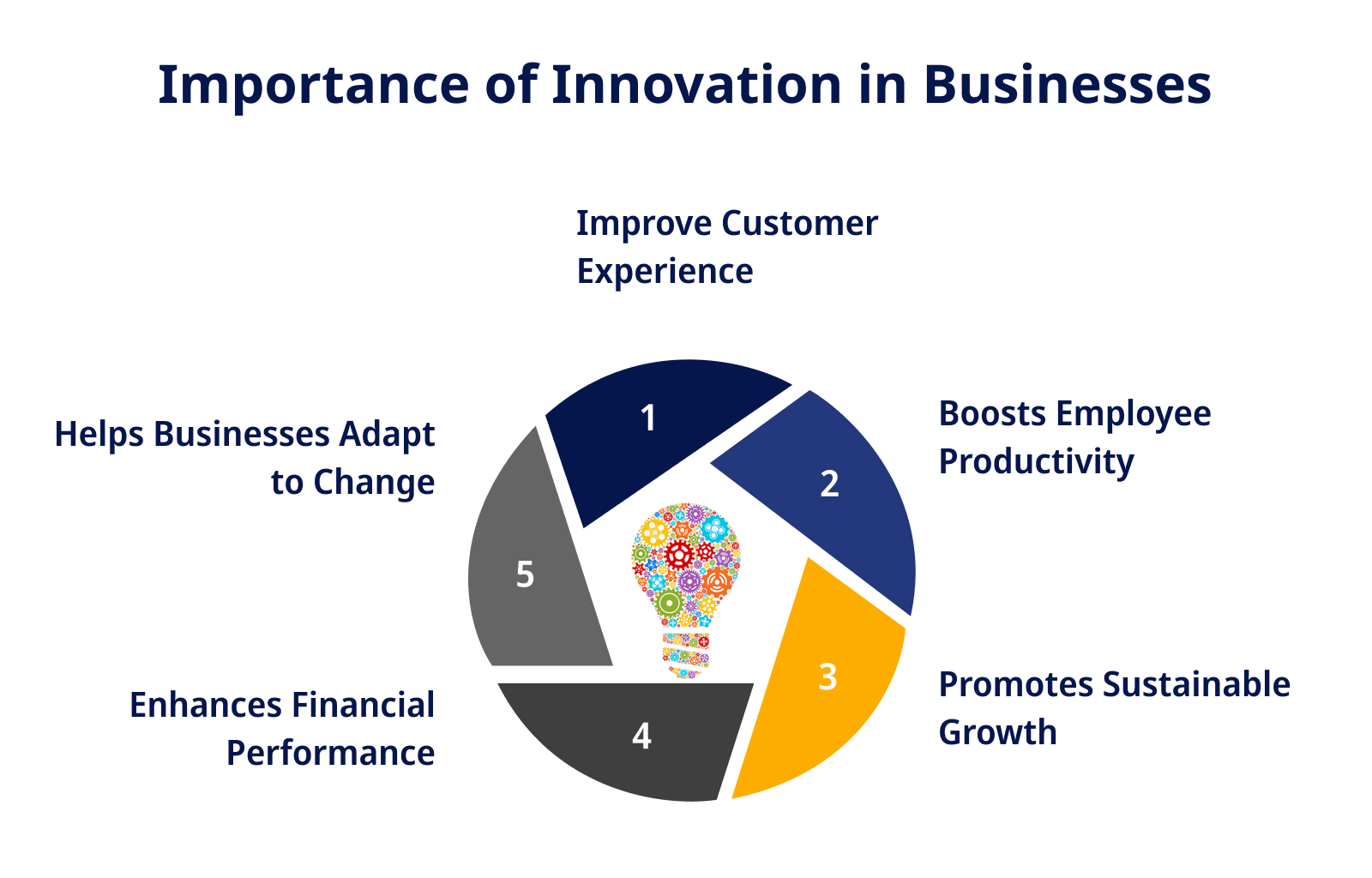Why Is It Important To Innovate In Business

Businesses clinging to outdated models face extinction. Innovation is no longer optional; it's a survival imperative in today's relentlessly evolving marketplace.
This article delves into why constant innovation is crucial for business success. We will explore the multifaceted benefits, from enhanced competitiveness to improved profitability and sustained relevance.
The Relentless Pace of Change
The business landscape is in perpetual motion. Technological advancements, shifting consumer preferences, and global market dynamics demand constant adaptation. According to a 2023 McKinsey report, companies that consistently innovate experience revenue growth 2.2 times higher than those that don't.
Failure to innovate leads to stagnation and obsolescence. Blockbuster, once a dominant force in the movie rental industry, serves as a stark reminder of what happens when companies fail to adapt to changing consumer behavior. Their reluctance to embrace streaming services ultimately led to their demise.
Gaining a Competitive Edge
Innovation is the engine of competitive advantage. Companies that proactively develop new products, services, and processes gain a significant edge over their rivals. Consider Apple, a company renowned for its innovative products and designs, which consistently commands a premium in the marketplace.
A study by the Boston Consulting Group found that the most innovative companies achieve a 1.7 times higher total shareholder return than their less innovative counterparts. This demonstrates a clear correlation between innovation and financial performance.
Boosting Profitability and Efficiency
Innovation isn't just about creating new products; it's also about improving efficiency and reducing costs. Process innovation, for example, can streamline operations, optimize resource allocation, and enhance productivity. Toyota's renowned production system is a prime example of how process innovation can drive significant cost savings and improve quality.
Furthermore, innovative marketing strategies can help companies reach new customers and increase sales. A 2024 report by Deloitte suggests that companies with a strong focus on innovation are 20% more likely to report higher profit margins.
Attracting and Retaining Talent
In today's competitive job market, top talent is drawn to companies that foster a culture of innovation. Employees want to work for organizations that value creativity, encourage experimentation, and provide opportunities for growth. Companies like Google, known for their innovative work environment, consistently attract some of the brightest minds in the world.
A survey by Glassdoor revealed that employees who feel their company is innovative are three times more likely to recommend it as a good place to work. Innovation helps cultivate a positive and engaging work environment, leading to higher employee satisfaction and lower turnover rates.
Staying Relevant in a Dynamic Market
The business landscape is constantly evolving, and what works today may not work tomorrow. Innovation is essential for staying relevant and adapting to changing market conditions. Companies that are willing to experiment with new ideas and embrace emerging technologies are more likely to thrive in the long run.
Netflix, initially a DVD rental service, successfully transformed itself into a leading streaming platform by embracing digital technology and adapting to changing consumer preferences. This illustrates the importance of continuous innovation in maintaining market relevance.
Conclusion: The Imperative to Act Now
The message is clear: innovate or become irrelevant. Businesses must prioritize innovation to stay competitive, boost profitability, attract talent, and maintain relevance in today's dynamic market. Companies need to foster a culture of innovation, invest in research and development, and embrace new technologies.
The time to act is now. Start by assessing your current innovation capabilities. Next, identify areas for improvement and develop a concrete plan to implement innovative strategies. Failure to do so could mean falling behind and eventually disappearing.


















